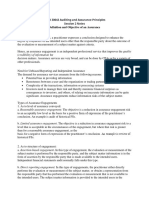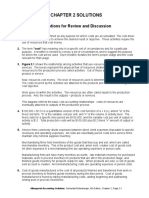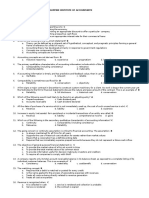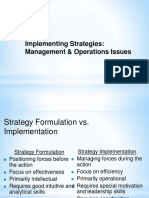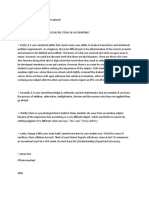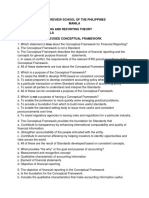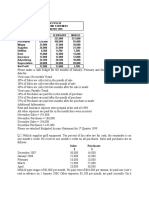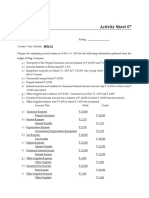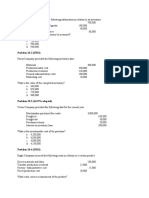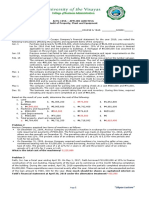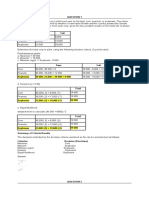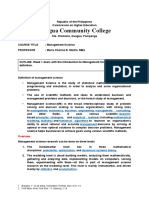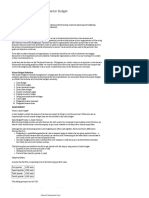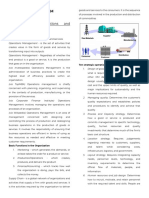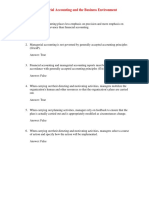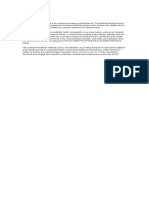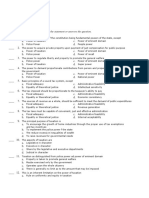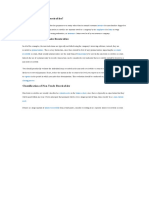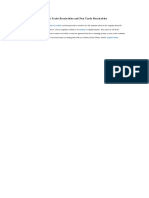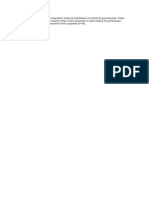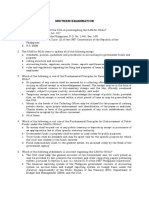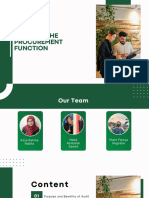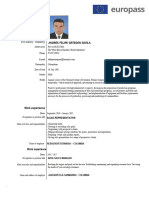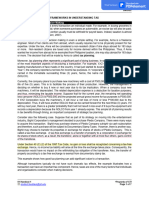0% found this document useful (0 votes)
287 views6 pagesTrue/False Questions
This document contains 40 true/false and multiple choice questions about managerial accounting from Chapter 1. It tests understanding of key differences between managerial and financial accounting, managerial accounting concepts like budgets, line and staff positions, strategies, value chains, lean thinking, and enterprise systems. It also covers ethics and standards like Sarbanes-Oxley and those of the Institute of Management Accountants.
Uploaded by
Jolianne SalvadoOfcCopyright
© © All Rights Reserved
We take content rights seriously. If you suspect this is your content, claim it here.
Available Formats
Download as DOCX, PDF, TXT or read online on Scribd
0% found this document useful (0 votes)
287 views6 pagesTrue/False Questions
This document contains 40 true/false and multiple choice questions about managerial accounting from Chapter 1. It tests understanding of key differences between managerial and financial accounting, managerial accounting concepts like budgets, line and staff positions, strategies, value chains, lean thinking, and enterprise systems. It also covers ethics and standards like Sarbanes-Oxley and those of the Institute of Management Accountants.
Uploaded by
Jolianne SalvadoOfcCopyright
© © All Rights Reserved
We take content rights seriously. If you suspect this is your content, claim it here.
Available Formats
Download as DOCX, PDF, TXT or read online on Scribd
/ 6








